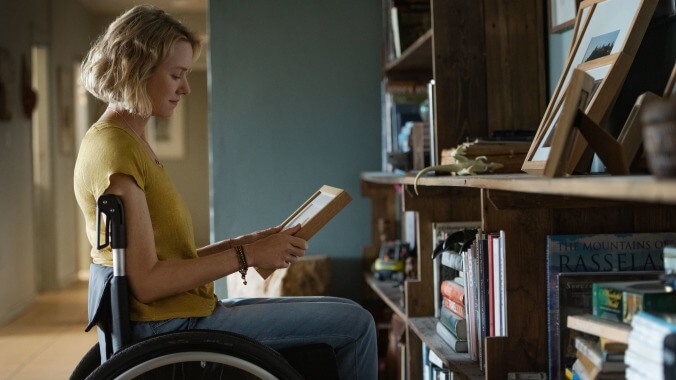Even Naomi Watts can’t fly above the inspirational pap of Netflix’s Penguin Bloom

No penguins appear in Netflix’s new weepie Penguin Bloom, and a cynical person might assume that such a misleading title must have been generated by the company’s fabled algorithm (with Bloom thrown in to remind older viewers of Bloom County and its beloved penguin character, Opus). In truth, the film was adapted from an Australian memoir of the same name, though the book’s U.S. publisher initially chose to market it more straightforwardly as Penguin The Magpie: The Odd Little Bird Who Saved A Family. Written by photographer Cameron Bloom (with Bradley Trevor Greive), and itself inspired by his family’s popular Instagram account, this bestseller chronicles the harrowing-to-heartwarming period immediately after his wife, Sam, suffered a spinal-cord injury that left her paralyzed from the waist down. Depressed and despondent, feeling utterly useless, Sam had trouble—mentally much more than physically—just getting out of bed in the morning… until one of her three young sons found a baby magpie that had fallen out of its nest, and brought “Penguin” (named for its black and white plumage) home in order to care for it.
Naomi Watts and Andrew Lincoln play Sam and Cam on screen, but Penguin Bloom’s true stars are the various trained magpies who play Penguin (supplemented by occasional CG bird action). The Blooms don’t keep their new friend in a cage, allowing it to wander freely around the house; magpies (and corvids in general) are arguably the most intelligent non-mammalian animals, and it’s mild fun, for a while, to watch this one swipe teabags out of people’s mugs and grow attached to one of the kids’ stuffed toys. But screenwriters Shaun Grant and Harry Cripps make the parallels between woman and bird so insultingly explicit that director Glendyn Ivin may as well have added an animated lightbulb repeatedly switching on over Sam’s head as she watches Penguin grow and flourish. Its first successful flight convinces her to try kayaking, a sport that doesn’t require the use of her legs. (Real-life Sam has won competitions.) A fight between Sam and her mother (Jacki Weaver), who won’t stop treating her like a burden, gets interrupted by the sound of Penguin being attacked by other magpies. The movie won’t stop treating you like an idiot.
Because Watts is a gifted actor, Penguin Bloom does sometimes convey paraplegia’s emotional trials—the frustration of no longer being able to accomplish simple tasks that you’d always taken for granted, the sometimes maddening necessity to rely upon others for assistance. Even that’s familiar territory, though (going back at least as far as 1981’s Whose Life Is It, Anyway?), and making the movie family-friendly requires letting key aspects go completely unexplored. It’s quite touching when Cam tells Sam that he considers himself the luckiest man alive, because the woman he loves survived a fall that could easily have killed her; viewers curious about how this devoted couple has adapted their sex life to their new circumstances, however, will have to keep on wondering (or watch The Sessions), as they never do anything more ardent than hold hands. Penguin doesn’t get any, either, ultimately flying away after apparently having determined that its inspirational example is no longer needed. Seconds before departing, it returns the stuffed toy to the kid’s bed, thereby signifying its own rite of passage. If you’re gonna go that ludicrously far, why not just have the thing talk, too?